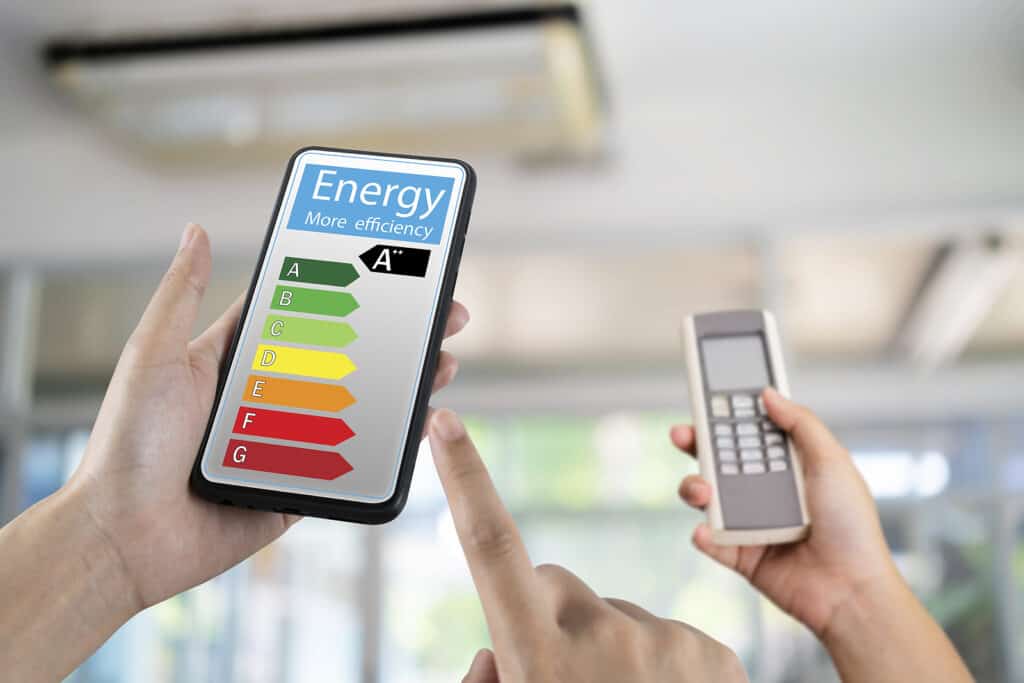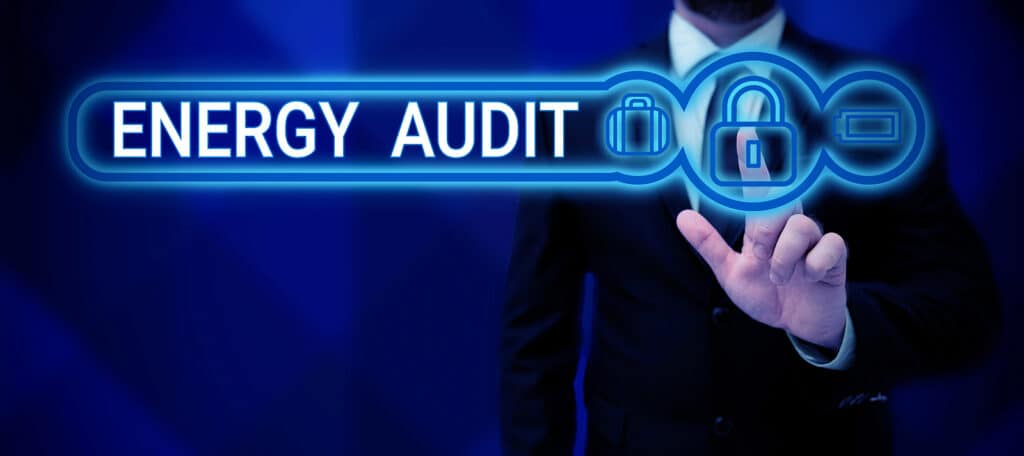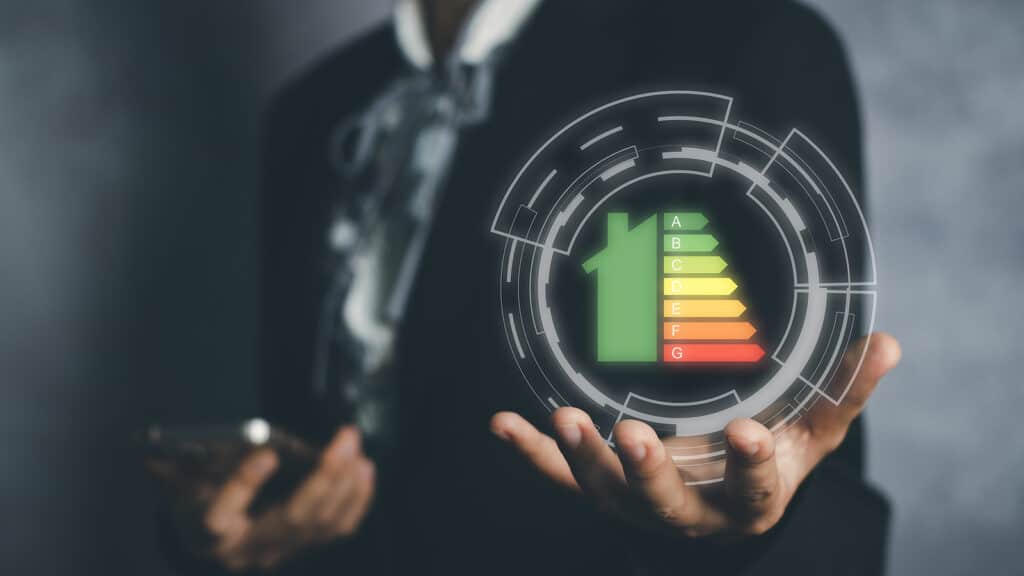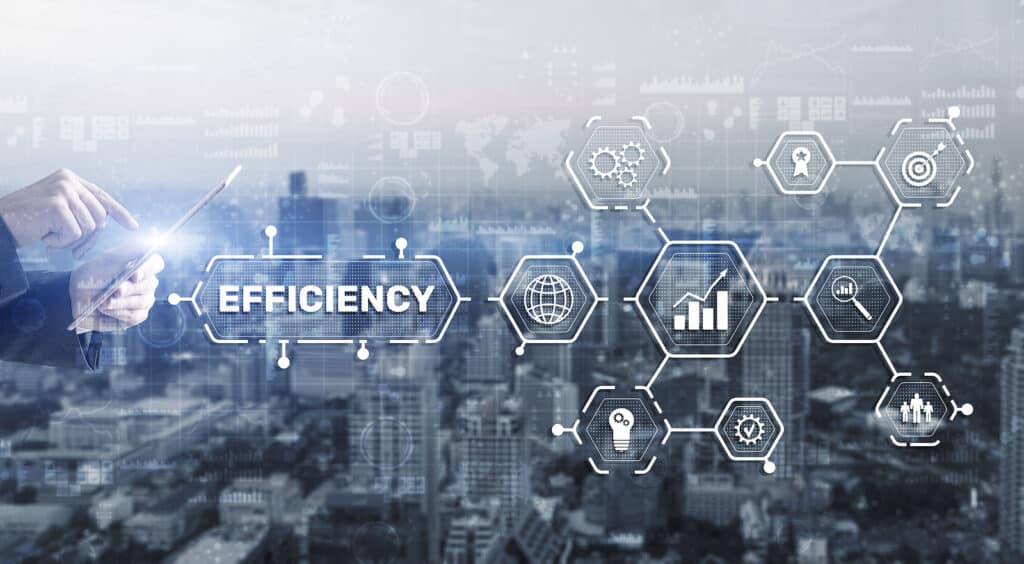Trailblazing Ways to Improve Energy Efficiency at Home
In our fast-paced modern world, recognizing the immense value of energy efficiency has become absolutely crucial. With mounting worries about climate change and dwindling resources, the quest for inventive methods to cut down on energy usage and reduce our ecological footprint has rightfully taken center stage. In this all-encompassing handbook, we'll embark on a journey through the realm of energy efficiency, specifically tailored for homeowners like you who are eager to unearth ways to enhance energy efficiency within the comfort of your own abode.
We'll delve into what energy efficiency entails, and how it operates, and most importantly, we'll uncover a treasure trove of the latest technologies and practices. These resources will empower you to transform your living space into a hub of energy efficiency, contributing to a greener future for our planet. So, if you're keen to make impactful changes that benefit both your household and the environment, read on to explore a world of possibilities in bolstering the energy efficiency of your cherished home.
What is Energy Efficiency?
Energy efficiency is a fundamental principle that revolves around the concept of achieving equivalent levels of output or performance while effectively minimizing the utilization of energy input. This concept essentially embodies the idea of accomplishing more with a decreased consumption of resources. The scope of energy efficiency is extensive, encompassing diverse sectors such as residential, commercial, and industrial domains.
In essence, the essence of energy efficiency lies in optimizing processes and adopting technologies that enable the attainment of desired results without the need for excessive energy consumption. By implementing energy-efficient strategies and incorporating advanced technologies, both individuals and enterprises can substantially curtail their overall energy usage, leading to a significant reduction in their ecological footprint and contribution to carbon emissions. This not only translates into economic benefits but also holds paramount significance in the pursuit of sustainable practices that can safeguard the environment for current and future generations.
Why is Energy Efficiency Important?
The importance of energy efficiency stands as a critical pillar in our contemporary world, and its ramifications extend far beyond a mere consideration. In an era characterized by the relentless ascent of energy demand, spurred predominantly by burgeoning global populations and the expansive waves of industrialization, the ensuing pressure on finite natural resources and the delicate ecological equilibrium becomes increasingly conspicuous.
Amid this intricate tapestry of challenges, the role of energy-efficient practices emerges as an indispensable tool in our collective arsenal. It serves as a potent mechanism to counteract and ameliorate the deleterious consequences stemming from rampant energy consumption. By judiciously implementing energy-efficient methodologies, we are able to intercept the cascade of adverse effects that unchecked energy use can instigate. Paramount among these effects is the palpable reduction of greenhouse gas emissions, a notorious contributor to global climate change. Through the adoption of energy-efficient practices, we work towards mitigating the exacerbation of climate-related issues and proactively charting a trajectory towards a more balanced and sustainable future.
It is incumbent upon us to recognize that energy efficiency is not merely a peripheral concern, but rather a pivotal linchpin in the quest for ecological harmony. By embracing and championing energy efficiency, we proffer ourselves the opportunity to alleviate the mounting pressures on our planet's natural systems and to forge a legacy of responsible resource utilization for the generations that follow. In essence, save energy at home during ways to conserve energy encapsulates a profound ethos that acknowledges the intrinsic interconnectedness of our actions with the intricate web of life on Earth, and it beckons us to tread more lightly upon this fragile yet resilient planet.

Key Benefits of Improving Energy Efficiency
Improving energy efficiency offers a wide range of key benefits that extend to individuals, businesses, communities, and the environment. Here are some of the most important advantages:
Cost Savings
One of the primary benefits of energy efficiency improvements is the significant cost savings that can be achieved. Reduced energy consumption leads to lower utility bills for households and businesses. Over time, these savings can be substantial and contribute to increased financial stability.
Environmental Preservation
Energy efficiency helps to reduce the overall demand for energy, which in turn reduces the need for fossil fuel-based energy production. This leads to lower greenhouse gas emissions and less pollution, contributing to improved air and water quality and helping to mitigate climate change.
Resource Conservation
Energy efficiency decreases the demand for raw materials used in energy production, such as coal, oil, and natural gas. By conserving these resources, we can extend their availability and reduce the negative environmental impacts associated with their extraction and processing.
Energy Security
By using energy more efficiently, countries can become less dependent on imported energy resources, enhancing their energy security. This can reduce vulnerability to supply disruptions and geopolitical tensions related to energy sources.
Job Creation
The energy efficiency sector can be a significant source of job creation. Industries related to energy-efficient technologies, such as solar panels, LED lighting, and smart appliances, often require skilled workers for manufacturing, installation, maintenance, and research and development.
Improved Comfort and Health
Energy-efficient improvements often lead to better indoor environmental quality. Proper insulation, efficient heating and cooling systems, and adequate ventilation can contribute to a more comfortable and healthier living and working environment.
Technological Innovation
Pursuing energy efficiency fosters innovation in various fields, including engineering, architecture, materials science, and software development. This drive for innovation can lead to the development of new technologies and solutions that benefit multiple industries.
Reduced Strain on Infrastructure
Energy efficiency helps decrease peak energy demand, which can alleviate stress on electrical grids during periods of high consumption. This can reduce the need for costly infrastructure upgrades and improve the overall reliability of the energy supply.
Corporate Social Responsibility
Businesses that prioritize energy efficiency demonstrate a commitment to sustainability and environmental responsibility. This can enhance their reputation, attract environmentally conscious customers, and lead to increased customer loyalty.
Global Competitiveness
Countries and businesses that lead in energy efficiency can gain a competitive edge in the global market. They are better positioned to adapt to changing energy regulations and consumer preferences, potentially leading to increased market share and profitability.

Innovative Ways to Improve Energy Efficiency
Revolutionizing Climate Control with Smart Thermostats and HVAC Systems
Embracing the power of technology, smart thermostats have emerged as a transformative method to optimize home temperature management. These intelligent devices learn your temperature preferences over time and autonomously adjust your heating and cooling systems accordingly. Some advanced models even synchronize with your smartphone, granting you remote control over your home's climate. This feature ensures that energy isn't squandered when the premises are unoccupied, aligning comfort with energy efficiency.
Illuminating Efficiency with Energy-Efficient Lighting Solutions
The days of energy-guzzling incandescent bulbs are gradually giving way to a new era of energy-conscious illumination. Energy-efficient alternatives such as LED (Light Emitting Diode) and CFL (Compact Fluorescent Lamp) bulbs consume a mere fraction of the energy while delivering the same luminosity. Beyond efficiency, these advanced bulbs boast significantly extended lifespans, thereby reducing the frequency of replacements and cutting down on waste.
Transforming Homes through Comprehensive Insulation and Sealing
The foundation of energy efficiency often lies in the structural integrity of a home. A meticulously insulated and hermetically sealed abode becomes a fortress against energy wastage. Effective insulation in attics, walls, and floors serves as a thermal barrier, conserving warmth during winter and repelling heat during summer. Coupled with meticulous sealing of gaps and fissures, this approach can yield a profound impact on energy consumption, lessening the reliance on perpetual heating and cooling cycles.
Modernizing Energy Usage with High-Efficiency Appliances
The realm of household appliances has undergone a revolution, offering a plethora of energy-efficient options. Appliances bearing the Energy Star label adhere to rigorous energy efficiency benchmarks set by the Environmental Protection Agency (EPA). This certification guarantees that you can embrace energy savings without compromising performance or functionality. From refrigerators to washing machines, these appliances not only minimize resource consumption but also contribute to lower utility bills.
Pioneering the Energy Landscape through Renewable Sources
Championing energy efficiency extends to embracing renewable energy sources, marking a seismic shift in the energy paradigm. Solar panels and wind turbines, emblematic of this movement, harness nature's abundance to generate electricity sustainably. Solar panels, for instance, transmute sunlight into usable energy, reducing dependence on conventional fossil fuels. This leap into the realm of renewable energy not only bolsters energy efficiency but also aligns with eco-friendly principles, positioning society for a more sustainable future.

Taking Energy Efficiency to the Next Level
As society's awareness of the critical importance of energy efficiency grows, it becomes increasingly imperative to explore innovative strategies that push the boundaries of what is achievable. Taking energy efficiency to the next level involves embracing advanced technologies, reimagining existing systems, and fostering a culture of sustainable practices. Here's how we can embark on this transformative journey:
Intelligent Building Automation
Relying on sophisticated building management systems equipped with artificial intelligence and machine learning capabilities can revolutionize the way we control energy consumption. These systems can analyze occupancy patterns, weather forecasts, and real-time energy demands to optimize heating, cooling, lighting, and other building functions. By seamlessly adapting to dynamic conditions, they minimize energy waste while ensuring optimal comfort.
Energy-Efficient Urban Planning
Beyond individual structures, energy efficiency must extend to the urban landscape. Urban planners can strategically design cities to minimize energy demands by considering factors like transportation infrastructure, green spaces, and efficient waste management systems. Integrated public transportation, pedestrian-friendly designs, and mixed land-use zoning can all contribute to reducing energy consumption at a macro level.
Advanced Energy Storage Solutions
Enhancing energy efficiency involves addressing the challenges of energy storage and distribution. Cutting-edge energy storage technologies, such as advanced batteries and innovative thermal storage systems, can capture excess energy during off-peak hours and release it when demand is high. This mitigates the need for peak-load power generation, optimizing energy utilization and grid stability.
Decentralized Energy Generation:
Transitioning towards decentralized energy generation through microgrids and localized renewable sources can further amplify energy efficiency. Microgrids offer localized power generation, often incorporating renewable sources like solar panels and small-scale wind turbines. This not only reduces transmission losses but also ensures a more resilient energy supply during grid disruptions.
Data-Driven Insights:
The proliferation of sensors and data analytics provides unprecedented opportunities to gain insights into energy consumption patterns. Smart meters, IoT-enabled devices, and energy management software can empower individuals and organizations with real-time data. Armed with these insights, users can make informed decisions to optimize energy use, identify inefficiencies, and implement targeted improvements.
Innovation in Materials and Construction
The construction industry plays a pivotal role in energy efficiency. Utilizing advanced materials with high thermal resistance properties, coupled with innovative construction techniques, can lead to highly energy-efficient buildings. From passive solar designs to green roofs, innovation in construction can drastically reduce energy demands for heating, cooling, and lighting.
Behavioral Change Campaigns
Shifting towards a culture of energy efficiency requires education and engagement. Governments, businesses, and communities can initiate awareness campaigns that promote energy-conscious behaviors. Simple actions like turning off lights when not needed, unplugging idle electronics, and embracing energy-efficient habits collectively contribute to significant energy savings.
Collaborative Research and Development
Governments, research institutions, and private sector entities can collaborate to drive innovation in energy efficiency technologies. Funding research, sharing knowledge, and facilitating partnerships can accelerate the development and deployment of breakthrough solutions that redefine the possibilities of energy conservation.
Where to Access Energy Efficiency Technologies
As the drive for energy efficiency gains momentum, the availability of advanced technologies designed to optimize energy consumption has expanded significantly. Whether you're an individual homeowner, a business owner, or a community leader, several avenues can lead you to the doorstep of energy efficiency technologies:
Local Retailers and Distributors
Many energy-efficient technologies, such as LED bulbs, smart thermostats, and high-efficiency appliances, are readily available at local hardware stores, electronics retailers, and appliance shops. These outlets often offer a variety of options that cater to different budgets and preferences.
Online Marketplaces
E-commerce platforms provide a vast array of energy-efficient products. From energy-efficient lighting solutions to smart home devices, you can explore a plethora of options from the comfort of your home. Online marketplaces also enable you to compare features, read reviews, and make informed decisions.
Manufacturer Websites
Most energy-efficient technology manufacturers maintain official websites where you can learn about their products, specifications, and benefits. Directly purchasing from manufacturers might provide access to the latest offerings, promotions, and customer support.
Energy Efficiency Programs
Many governments and utility companies run energy efficiency programs that offer incentives, rebates, and discounts on energy-efficient technologies. These programs aim to encourage adoption by making such technologies more affordable for consumers and businesses.
Professional Contractors and Consultants
If you're seeking comprehensive energy efficiency improvements for your home or business, consider consulting with energy auditors or professional contractors. They can provide personalized recommendations based on your specific needs and implement technologies that yield optimal results.
Conclusion
As I conclude this enlightening journey through the realm of energy efficiency, I am invigorated by the potential it holds for my role as a homeowner. The profound impact of energy-efficient choices, from smart technologies to mindful insulation, resonates deeply within me.
With each decision I make, I am not just enhancing my living space; I am contributing to a global movement that embraces innovation, fosters responsibility, and envisions a greener future. This is more than a personal endeavor; it's a collective effort to create a legacy of sustainability for generations to come, and I am eager to stand as a part of this transformative wave.
Sources
- https://saveonenergy.ca/For-Your-Home/Advice-and-Tips/12-ways-to-make-your-home-more-energy-efficient
- https://www.directenergy.com/learning-center/25-energy-efficiency-tips
- https://www.energysage.com/energy-efficiency/101/ways-to-save-energy/
- https://www.energy.gov/eere/energy-efficiency-buildings-and-industry
- https://www.bdc.ca/en/articles-tools/sustainability/climate-action-centre/articles/how-aim-net-zero-energy-efficiency
- https://www.nachi.org/increasing-home-energy-efficiency-client.htm

